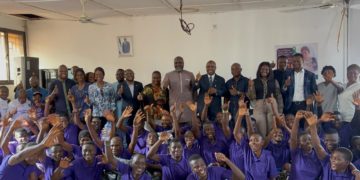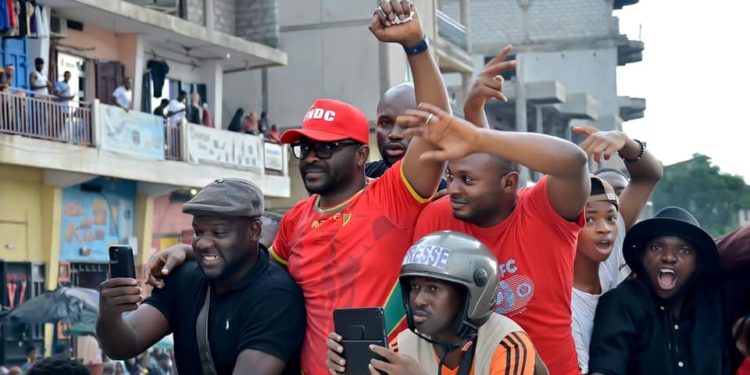The Guinean pressure group – the National Front for the Defence of the Constitution (FNDC), has vowed to go ahead with a planned anti-junta demonstration despite a ban by the authorities.
The group wants to use the protests on Thursday, July 28, to force the military-led transition administration to engage the civil society and opposition political parties in ongoing process of transition to democratic rule.
Guinea plunged into its current political crisis when a group of soldiers, led by Col. Mamady Doumbouya, ousted former President Alpha Conde in September 2021.
Doumbouya has promised to conduct elections and handover power to a civilian administration. But the process has been too slow for the liking of the opposition and the international community.
An FNDC spokesman told ManoReporters that they intended to get the junta to see the need to engage them and ensure a rapid transfer of power to democratic rule.
“The march is intended to protest against the refusal of the junta to dialogue with civil society and political parties to define the chronogram of the transition with a view to a rapid return to constitutional order,” says Ibrahima Diallo, FNDC’s Head of Operations.
Although it hasn’t presented its timetable yet officials, but a document appearing to be that has been circulating on social media platforms for sometime now. According to that document, the junta seeks to remain in power for a period of 36 months (three years), with legislative elections slated for November 2024 and presidential elections in May 2025.
The FNDC has rejected this timetable.
The Economic Community of West African States (ECOWAS) has also kicked against it.
At its last heads of state summit in the Ghanaian capital Accra on July 3rd, the West African leaders gave the junta up to the end of the month to produce a more acceptable timetable or face economic sanctions. Guinea is already suspended from the 15-nation bloc.
Reports suggest that the regional bloc is negotiating for a 24-month timetable.
The September 5 coup rekindled hopes for a new beginning among Guineans, who had felt disillusioned by the regime of Conde.
Nearly a year since then, the opposition has grown increasingly dissatisfied with the junta’s foot-dragging attitude.
The FNDC, which is coalition of civil society groups and political parties, has published a list of demands that it says sums up the concerns of the masses.
Among others, the group wants the transition administration to publish the list of members of the junta and to declare their assets. They are also calling for a halt on the use of the justice system to prosecute civil society and political activists who criticize the “unilateral management” of the transition process by the junta.
The group also wants to see an end to corruption and lack of transparency in the management of public affairs.
The FNDC was vocal against Alpha Conde, leading deadly protests against the regime of the ousted former president.
Another key demand of the pressure group therefore, is for officials who were responsible for the deaths of protesters and other human rights violations to be prosecuted.
The National Rallying Committee for Development (CNRD) junta banned protests in the country in May, after announcing its proposal for a three-year transition period. It says no one would be allowed to march until the period of electoral campaigns.
Earlier this month, three of the group’s members were detained, including Mamadou Billo Bah and rapper Alpha Midiaou Bah, also known as Djanii Alfa. Also detained was the group’s outspoken national coordinator, Oumar Sylla.
They were all detained during a press conference.
The three men were subsequently charged with producing and disseminating “insulting remarks” online against the National Transitional Council (CNT), the defacto legislative arm of the government.
The trio, who has been released on bail, made their first court appearance on Thursday, July 8.
But Diallo says they are not deterred by those actions of the junta.
“The demonstration is a right recognized by the charter of the transition as well as the international treaties to which Guinea has subscribed,” he told ManoReporters.
“Our duty is to inform the authorities of our decision to go on a march, which we have already done. So it is now the responsibility of the junta to supervise this march. But if the junta decides to repress the citizen and peaceful march, it will be held responsible for the consequences,” Diallo says.
Some opposition politicians, including Sellou Dallien Diallo, have called on their members to join Thursday’s protest.






















